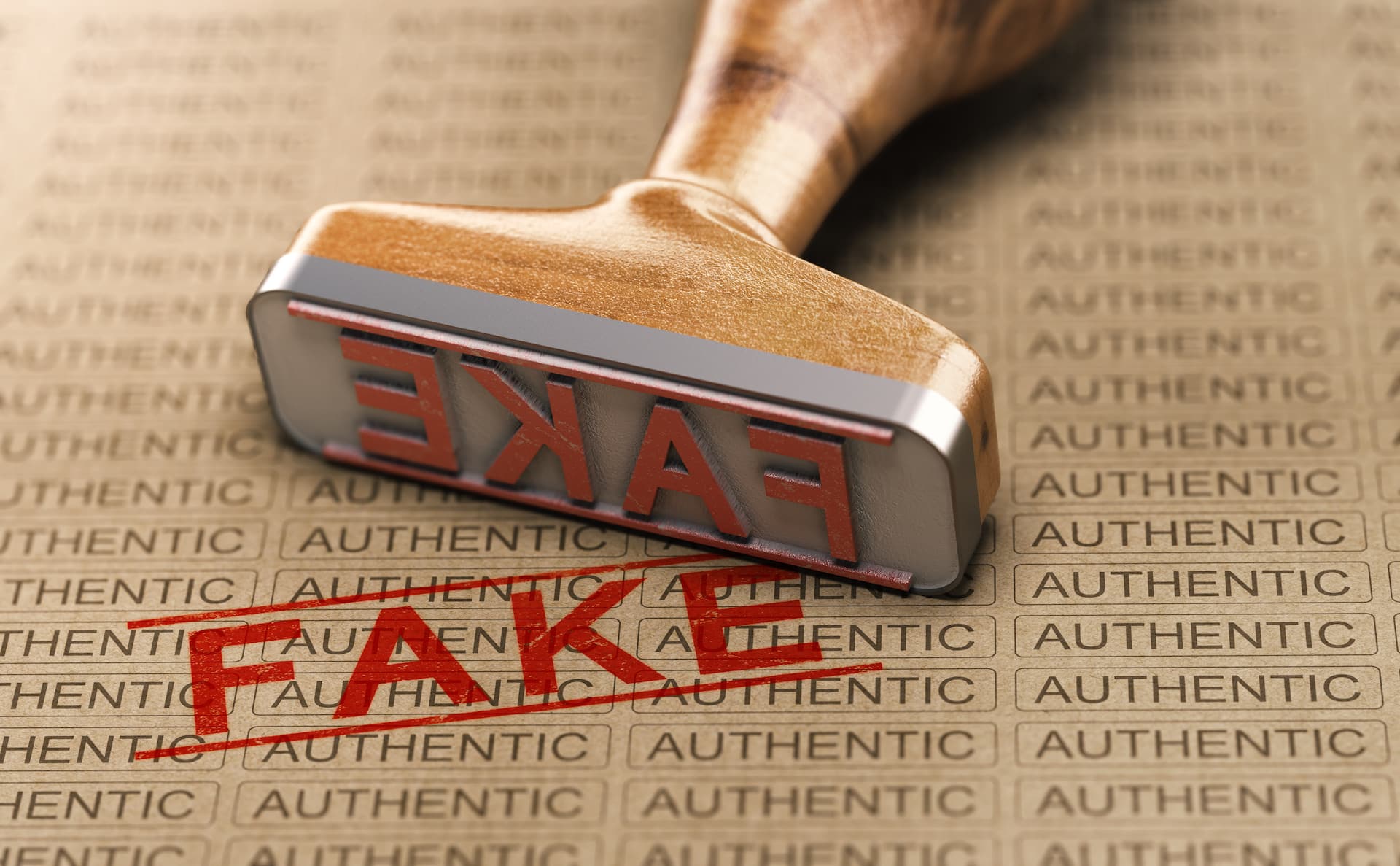Legal issues may be complicated and daunting, so it’s critical to get expert help when you need it. But when you search for trustworthy legal advice, you can run into impostor law firms waiting to exploit your weakness.
It is essential to recognize these dishonest companies to protect your finances and interests. We will examine seven crucial indicators of a phony law firm in this extensive article to help you spot them and stay away from their dishonest tactics.
A Fake Law Firm: What Is It?
Illegitimate organizations, known as fake law firms, trick people looking for legal assistance. They can come in many shapes and sizes, from imaginary people to dishonest people. They intend to cheat customers by providing shoddy services, obtaining private information, or charging exorbitant prices.
How to Spot a Fake Law Firm: 11 Warning Signs
Therefore, the subject of how to spot a phony attorney or law office needs to be carefully considered and scrutinized. You can better defend yourself against falling for their deceptive techniques by becoming aware of the following warning flags:
State Bar Profile:
The directory of your state bar association must contain the names of all attorneys licensed to practice law in your home state. To practice law, legitimate legal firms must possess the necessary licenses and certifications. Check the firm’s credentials with the appropriate legal authorities, such as the solicitor’s regulation authority or the state bar association. It is concerning when someone refuses to submit their credentials or does not have a legal license.
Google and other search engines:
You can look up your lawyer online to see if there are any articles, books, or websites linked to them.
Incoherent Interaction:
Inconsistent communication styles are a common feature of fake legal businesses. They could be hard to get in touch with, slow to reply to messages, or give you ambiguous, noncommittal answers. Reputable legal practices place a high value on efficient communication and keep lines of communication open with their customers.
A dishonest website or online persona
Examine the website and internet presence of the legal practice for indications of professionalism and reliability. Grammar mistakes, bland material, and ill-designed websites are common characteristics of fraudulent law businesses. Reputable legal practices invest in building a polished web presence that showcases their knowledge and dedication to their clients.
High-Pressure or Unsolicited Contact Techniques:
Be wary of legal firms that approach you without your consent or that put you under pressure to employ their services. Reputable legal firms don’t engage in aggressive solicitation or unduly influence you; instead, they protect your privacy and uphold ethical standards.
Success Promises:
Genuine legal firms are unable to promise particular resolutions or results in court cases. If a law firm makes exaggerated claims or guarantees a win, proceed with caution. Since court cases are intricate and unexpected, moral lawyers don’t offer unjustified assurances.
Negative Online Reputation or Reviews:
Examine the reputation of the legal practice by reading internet evaluations, client endorsements, and comments. Fake legal practices frequently lack an internet presence or have bad evaluations. Reputable legal practices work hard to uphold a stellar reputation and have happy, recommending clientele.
Fee Transparency Is Missing:
Reputable legal businesses are known for their transparent fee arrangements. Be cautious when dealing with companies that are opaque or hesitant to give accurate information about their costs. Get a thorough cost breakdown and check that the prices match industry norms to be sure you’re not getting ripped off.
Lack of a physical office address
A respectable legal practice needs to have a physical location where clients can visit with attorneys or other staff members. False legal firms may indicate that they lack a real operational foundation by giving ambiguous or nonexistent office addresses.
Request for Payment in Full Up Front:
If a law firm requests large advance payments before doing any legal work, proceed with care. Genuine legal practices usually charge their clients for the services they provide and operate on a retainer or contingency fee basis.
Restricted or Nonexistent History:
Examine the track record and experience of the legal company in managing cases comparable to yours. False legal practices can not have a significant track record of won cases or might not offer testimonials from past clients.
How to Spot a Fake Law Firm: How Can One Spot a Scammed Email Address of a False Lawyer?
A fake lawyer email address or any other scam email might be located by keeping an eye out for telltale signs of dishonest communication. Some telltale signs of a phony email claiming to be from a lawyer include the following:
Unsolicited Emails:
Exercise caution if you get an email from a lawyer or legal company without any prior communication or explanation. Generally speaking, respectable attorneys don’t send unsolicited emails.
Generic pleasantries:
Rather than addressing you by name, scam emails frequently begin with generic pleasantries like “Dear Sir/Madam” or “Hello, Beneficiary.”
Poor Spelling and Grammar:
A lot of scam emails have misspellings, grammar problems, or strange wording. Reputable attorneys usually possess proficient communication abilities.
Sensational or Urgent Words:
Con artists frequently employ threats or urgency to get you to act right now. Steer clear of emails that tell you that you have to reply right away or risk legal repercussions.
Untrustworthy Email Addresses:
Verify the email address of the sender. It is unusual for real attorneys to utilize free email services like Gmail or Yahoo for business contact, but scammers might.
Request for Personal Information:
If the email asks for personal information, such as your passwords, bank account information, or Social Security number, proceed with caution. If reputable attorneys are handling your case, they need to already have this material.
Offers That Seem Too Good to Be True:
An email that makes extravagant claims about financial gain or a settlement is probably a fraud.
Unverified Links and Attachments:
Be wary of opening attachments or clicking links in eerie emails. They could direct users to fraudulent websites or include malware.
Check the Legal Firm Out:
Look for the name of the legal practice online and visit their official website. To verify the authenticity of an email claiming to be from a reputable company, get in touch with them immediately using the details provided on their official website.
Speak with a Reliable Source:
Speak with a dependable friend, relative, or coworker if you have any doubts about the legitimacy of an email. Occasionally, a new viewpoint can assist you in spotting a hoax.
How to Spot a Fake Law Firm: The Repercussions Of Dealing With A Scam Law Firm
Dealing with a phony legal practice can lead to dire outcomes. These could consist of:
- Financial loss: In exchange for payment, fraudulent law companies may demand large upfront costs or offer mediocre legal services. Both the money you invest and the status of your legal issues could change.
- Compromised personal data: Sophisticated legal practices can obtain private data, including social security numbers and bank account information, which could expose you to identity theft and other fraudulent activities.
- Ineffective legal representation: Ridiculous law firms are devoid of the experience and know-how necessary to manage cases skillfully. Using such services may result in undesirable consequences, the loss of legal rights, or the passing up of possibilities.
In Summary on How to Spot a Fake Law Firm:
Finding a fake law company or fake lawyer is essential if you want to safeguard yourself from fraud. Do your homework, check your credentials, and keep an eye out for warning signs like shoddy website design, amateurish communication, and shady money requests to be sure you are dealing with a reliable internet firm.



